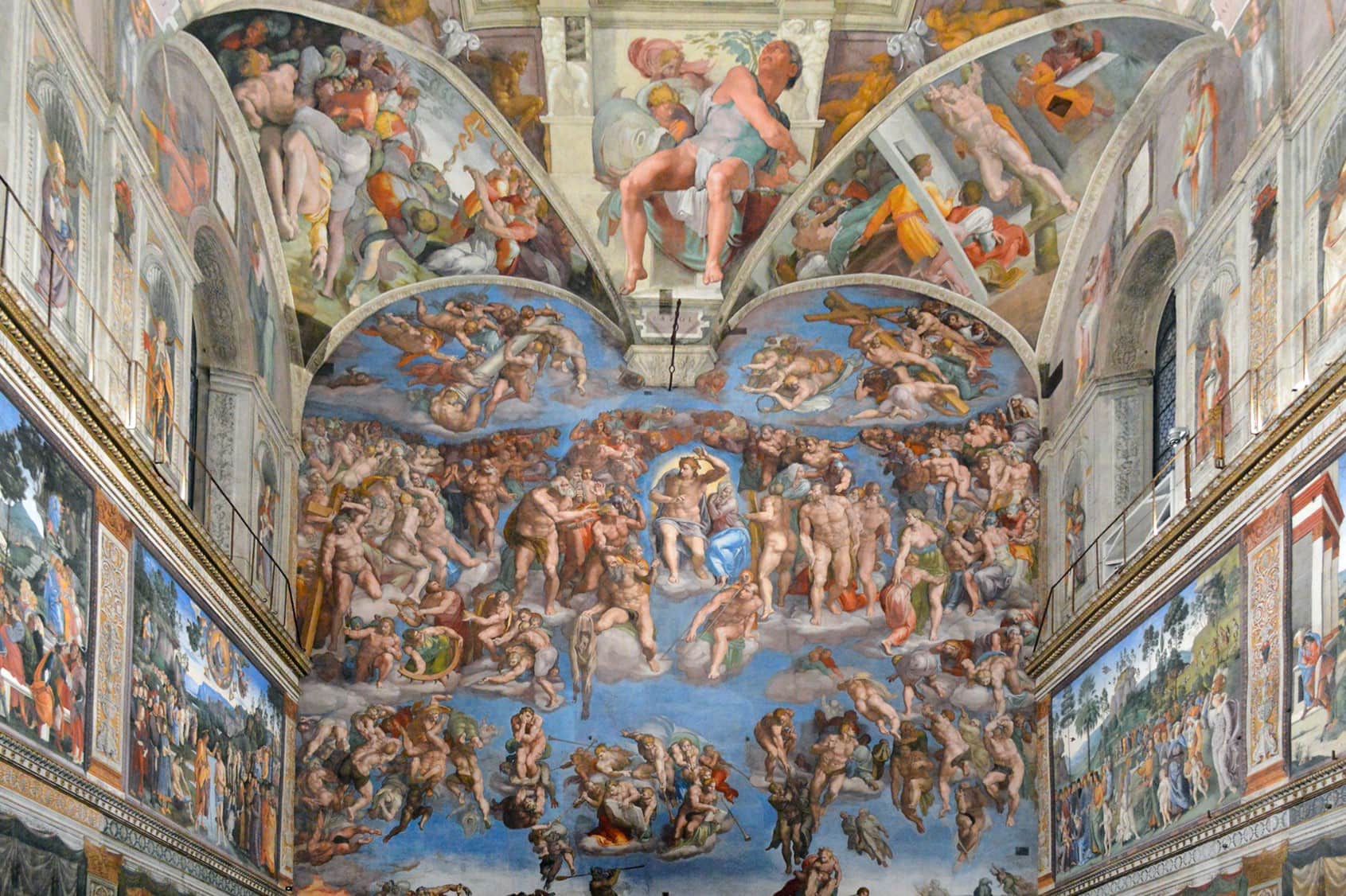
What is Gnosticism? Gnosticism is a religious movement that emerged in the late 1st century AD, emphasizing personal spiritual knowledge over traditional religious teachings. Rooted in philosophical and religious pessimism, Gnostics believed the universe was fundamentally flawed, created by a lesser god or demiurge. This movement includes various sects, each with unique doctrines and practices. Gnostic texts, often cryptic and fragmented, reveal a complex cosmology and a dualistic worldview where the material world is seen as evil. Despite being labeled a heresy by early Christian theologians, Gnosticism has influenced modern thought and continues to resonate with contemporary spiritual seekers.
Key Takeaways:
- Gnosticism emphasizes personal spiritual knowledge over traditional teachings, with a rich mythology and a complex cosmology that continues to influence modern spirituality.
- Gnosticism's revival in modern times has led to the popularization of its thought, making it accessible to contemporary spiritual seekers and influencing New Age thought.
What is Gnosticism?
Gnosticism is a fascinating and complex religious movement that emerged in the late 1st century AD. It emphasizes personal spiritual knowledge over traditional religious teachings. Let's dive into some key facts about this intriguing belief system.
-
Definition of Gnosticism
Gnosticism comes from the Greek word "gnosis," meaning "knowledge." It focuses on personal spiritual knowledge rather than institutionalized teachings. -
Origins of Gnosticism
The exact origins are unclear, but it likely formed in the late 1st century AD, influenced by Greek, Egyptian, Iranian, and Indian thought. -
Philosophical and Religious Pessimism
Gnostics believed the universe is fundamentally flawed, and salvation is achieved through esoteric knowledge, contrasting with philosophies that celebrate the world's beauty.
Gnostic Texts and Teachings
Gnostic texts are often fragmented and cryptic, making them challenging to interpret. The discovery of the Nag Hammadi library in 1945 shed light on many previously unknown Gnostic writings.
-
Gnostic Texts
The Nag Hammadi library's discovery provided significant insights into Gnostic literature, though many texts remain cryptic. -
Heresiologists and Gnosticism
Before Nag Hammadi, Gnosticism was known through heresiologists like Hippolytus and Irenaeus, who opposed Gnostic teachings and provided biased accounts. -
Simon Magus and the Origins of Gnosticism
Early Church Fathers like Justin Martyr and Irenaeus attributed Gnosticism's origins to Simon Magus, a 1st-century Samaritan magician. -
Valentinus and Other Gnostic Leaders
Prominent Gnostic leaders like Valentinus, Basilides, Marcion, and Docetae developed diverse and often conflicting doctrines.
Gnostic Cosmology and Mythology
Gnostic cosmology is rich with mythological elements, including the concept of a flawed creator and a dualistic view of the universe.
-
Cosmogony in Gnosticism
Gnosticism often describes the universe as created by a lesser god or demiurge, who fashioned the world in ignorance. -
The Role of the Demiurge
The demiurge is a flawed or ignorant deity who created the material world, seen as inherently evil in Gnostic teachings. -
The Concept of Gnosis
Gnosis refers to mystical knowledge necessary for salvation, reserved for the initiated few who achieve direct experience of ultimate reality.
Gnosticism and Christianity
Gnosticism emerged within early Christianity, presenting a competing strain of thought with significant differences in beliefs about the divine and the material world.
-
Gnosticism and Christianity
While Gnostics believed in Jesus Christ, their teachings diverged significantly from orthodox Christianity, especially regarding the material world. -
Gnostic Sects
Various Gnostic sects, like the Valentinians, Basilidians, and Marcionites, developed complex systems of thought with elaborate cosmologies. -
The Importance of Jesus in Gnosticism
Gnostics saw Jesus as a divine being who revealed the universe's true nature and guided individuals towards gnosis. -
The Gnostic Jesus
The Gnostic Jesus is portrayed as an enlightened being with esoteric knowledge, serving as a catalyst for others to achieve spiritual enlightenment.
Gnostic Practices and Beliefs
Gnostics employed various practices and held unique beliefs that set them apart from other religious traditions.
-
Gnosticism and the Material World
Gnostics viewed the material world as inherently evil, created by the flawed demiurge, and sought to escape it for spiritual liberation. -
The Role of Magic in Gnosticism
Magical practices, including rituals and spells, were used to achieve spiritual liberation and access higher levels of consciousness. -
Gnostic Influence on Modern Thought
Gnosticism's emphasis on personal spiritual knowledge and critique of traditional authority resonates with many contemporary spiritual seekers.
Modern Gnosticism
Gnosticism has experienced a revival in modern times, with new publications and organizations promoting Gnostic thought.
-
Modern Gnosticism
The magazine Gnosis, started in 1985, has popularized Gnostic thought, and institutional forms like the Ecclesia Gnostica Myteriorum have emerged. -
Gnostic Churches and Organizations
Several Gnostic churches and organizations incorporate Gnostic teachings into their practices, such as the Ecclesia Gnostica Myteriorum in Palo Alto, California. -
Gnosticism and Transgenderism
Some modern interpretations link Gnosticism to transgenderism, emphasizing finding one's true identity and rejecting traditional gender notions.
Gnostic Cosmology and Salvation
Gnostic cosmology presents a dualistic view of the universe, with salvation achieved through mystical knowledge.
-
Gnostic Cosmology
The universe is seen as a flawed creation, and the goal is to escape this world and achieve spiritual liberation. -
The Concept of the Pleroma
The Pleroma represents the fullness of divine being, a realm of pure light and essence, contrasting with the material world's evil. -
The Role of Sophia in Gnosticism
Sophia, or divine wisdom, plays a significant role in Gnostic cosmology, her fall leading to the creation of the flawed material world. -
Gnostic Salvation
Salvation is achieved through gnosis, a mystical knowledge that allows individuals to escape the material world and attain spiritual liberation.
Gnostic Rituals and Practices
Rituals and practices are crucial in Gnostic spirituality, often involving magical elements to achieve higher consciousness.
-
The Importance of Rituals in Gnosticism
Rituals, including magical spells and esoteric techniques, help Gnostics access higher consciousness and attain gnosis. -
Gnosticism and the Incarnation
Gnostics often denied the Incarnation, viewing Jesus as a divine being rather than fully human, revealing the universe's true nature. -
Gnosticism and the Resurrection
The resurrection of Jesus was often seen as a mythological event, not a historical fact, part of their broader critique of traditional Christianity. -
Gnostic Denial of Redemption
Gnostics believed salvation comes from within through gnosis, rejecting the need for external redemption through Christ.
Gnosticism as a Heresy
Traditional Christian theologians have long classified Gnosticism as a heresy due to its rejection of key doctrines.
-
Gnosticism as a Heresy
Gnosticism's rejection of the Incarnation and resurrection led to its classification as a heretical movement by traditional Christian theologians. -
Gnostic Influence on Western Esotericism
Gnosticism has profoundly influenced Western esotericism, shaping various spiritual and philosophical movements.
Gnostic Revival and Influence Today
Despite its historical classification as a heresy, Gnosticism continues to influence modern spirituality and thought.
-
Gnostic Revival in Modern Times
Publications like Gnosis have helped popularize Gnostic thought, making it accessible to contemporary spiritual seekers. -
Gnostic Churches and Organizations Today
Modern Gnostic churches and organizations incorporate ancient teachings into their practices, providing a contemporary context for Gnostic ideas. -
Gnosticism and Contemporary Spirituality
Gnosticism's emphasis on personal spiritual knowledge and critique of traditional authority resonates with many modern spiritual seekers.
Gnostic Cosmology and Key Concepts
Gnostic cosmology includes key concepts like the demiurge, Pleroma, and the role of Sophia, shaping their unique worldview.
-
Gnostic Cosmology and the Demiurge
The demiurge represents a flawed creator who fashioned the material world in ignorance, central to Gnostic teachings. -
The Role of the Pleroma in Gnostic Cosmology
The Pleroma, a realm of pure divine being, contrasts with the material world's evil, providing a spiritual goal for Gnostic seekers. -
Sophia and the Creation of the Material World
Sophia's fall is a key event in Gnostic mythology, leading to the creation of the flawed material world.
Gnostic Salvation and Practices
Gnostic salvation is achieved through mystical knowledge, with rituals and practices playing a crucial role in their spirituality.
-
Gnostic Salvation Through Gnosis
Salvation is achieved through gnosis, a direct experience of ultimate reality that allows individuals to escape the material world. -
Importance of Rituals in Gnostic Practice
Rituals, including magical spells and esoteric techniques, help Gnostics navigate their complex cosmology and achieve spiritual goals.
Gnosticism's Critique of Traditional Authority
Gnosticism critiques traditional religious authority, emphasizing personal spiritual knowledge over institutional teachings.
-
Gnosticism's Critique of Traditional Authority
Gnosticism emphasizes personal spiritual knowledge over institutional teachings, setting it apart from traditional Christianity. -
Gnostic Denial of the Incarnation
Gnostics often deny the Incarnation, viewing Jesus as a divine being rather than fully human. -
Gnostic Denial of the Resurrection
The resurrection is often seen as a mythological event, part of their broader critique of traditional Christian teachings. -
Gnostic Salvation as Internal
Salvation comes from within through gnosis, focusing on personal spiritual knowledge rather than external redemption.
Gnosticism's Modern Revival and Influence
Despite its historical classification as a heresy, Gnosticism is experiencing a revival and continues to influence modern spirituality.
-
Gnosticism as a Revival in Modern Times
Publications like Gnosis have popularized Gnostic thought, making it accessible to contemporary spiritual seekers. -
Gnostic Churches and Organizations Today
Modern Gnostic churches and organizations incorporate ancient teachings into their practices, providing a contemporary context for Gnostic ideas. -
Gnosticism's Influence on Contemporary Spirituality
Gnosticism continues to influence contemporary spirituality, particularly in New Age thought, emphasizing personal spiritual knowledge and critique of traditional authority.
Gnosticism's Lasting Impact
Gnosticism, with its rich tapestry of beliefs and practices, has left an indelible mark on spiritual thought. Emerging in the late 1st century AD, it challenged traditional religious norms by emphasizing personal spiritual knowledge over institutional teachings. The discovery of the Nag Hammadi library in 1945 shed light on many Gnostic texts, revealing a complex cosmology centered around the flawed demiurge and the quest for gnosis.
Despite being labeled a heresy, Gnosticism's influence persists, especially in modern spiritual movements and New Age thought. Its critique of traditional authority and focus on inner enlightenment resonate with contemporary seekers. Today, various Gnostic churches and organizations continue to explore and celebrate these ancient teachings.
Gnosticism's journey from ancient heresy to modern inspiration underscores its enduring appeal and relevance. Its unique perspective on the divine and the material world offers a fascinating alternative to mainstream religious thought.
Frequently Asked Questions
Was this page helpful?
Our commitment to delivering trustworthy and engaging content is at the heart of what we do. Each fact on our site is contributed by real users like you, bringing a wealth of diverse insights and information. To ensure the highest standards of accuracy and reliability, our dedicated editors meticulously review each submission. This process guarantees that the facts we share are not only fascinating but also credible. Trust in our commitment to quality and authenticity as you explore and learn with us.


